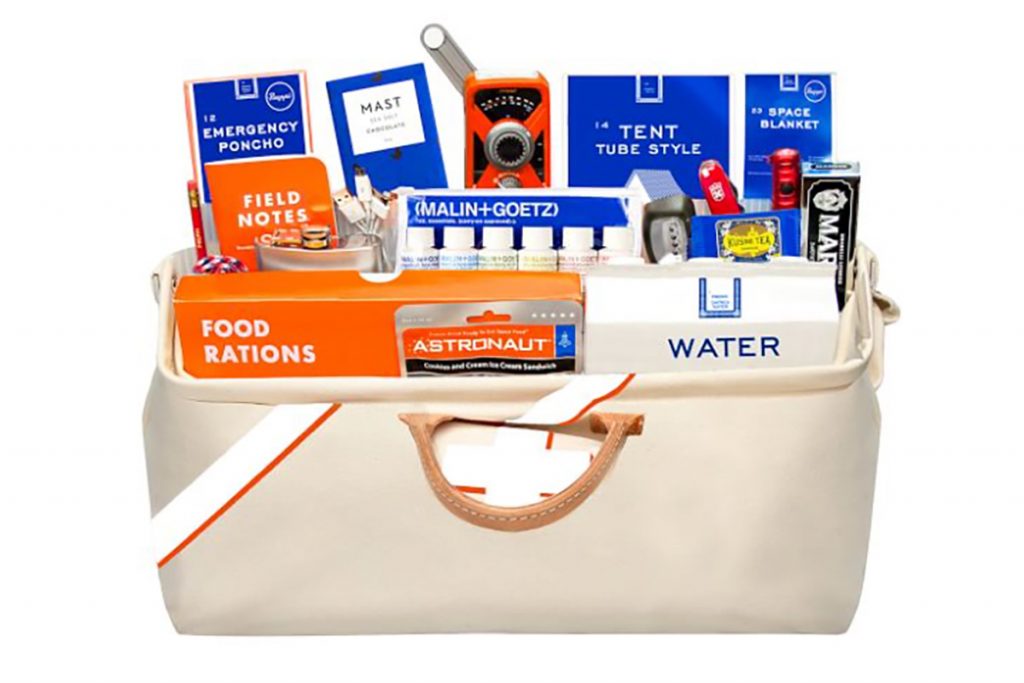As prepping becomes more mainstream, thanks in part to our current pandemic situation, we see more and more people getting into the concept of preparing themselves for the apocalypse. This now includes the fashionably well-off. Everyone, please welcome the financially elite to the party!
But what you and I might consider necessary for an emergency situation might differ a bit from what others think.
Take Pottery Barn’s Prepster Luxe, for example. This $500 “emergency bag” contains everything from grapefruit face cleanser, Kardashian-endorsed Kusmi Tea, and cilantro conditioner to a seven-dollar bar of chocolate. Yep.
While the (mostly negative) stereotype revolving preppers is still very much a socially accepted thing, it is slightly reassuring to know that those with money are paying attention. It could mean more acceptance, sponsorship, and research into true emergency gear. Or it could just mean 7-dollar candy bars.
But the fact remains: prepping is catching on. According to InsideHook, a current $75B industry is expected to reach $423B by 2025. If we make it that far, of course.
Enter Simon Huck. The already-successful entrepreneur turned his vision from the world of celebrity public relations to focus on a new brand of emergency preparedness gear simply named “JUDY.” He decided to start the company when he looked around and noticed that his family and friends were not prepared for the train wreck that is 2020.
“The common denominator was their fundamental lack of preparedness,” he told InsideHook earlier this week. “No one had a go-bag, a first aid kit. People had a haphazard approach to being prepared. Have you spoken to your husband or wife or kids or partner about an evacuation plan? No one had done that. None of the ground rules of basic emergency preparedness had been met.”
But perhaps the most impressive part of JUDY’s high-end bug-out bags is not the more practical contents (like duct tape, food bars, phone charger, and a flashlight), but the fact that CEO Huck donates one bag to a needy family for every one bag that is sold.
This benevolence is catching on as others are realizing the importance of charity beyond what we’ve been used to providing for low income families thus far. Everyone needs a chance at survival.
Chauncia Willis, the co-founder of The Institute for Diversity and Inclusion in Emergency Management (I-DIEM), agrees. “We understand the need for increased focus on vulnerable groups who are under-resourced,” she said. “One of the reasons we created this organization is because there is a lack of equity within the field of disaster management. We also understand that emergency preparedness cannot be purchased.”
Organizations such as I-DIEM go beyond what a government agency like FEMA does (or doesn’t do) in emergency situations. According to Willis, the focus of preparedness has been lost in recent years and she believes it’s time to get back to the old way of thinking within communities, “meaning that we share what we have.”


Leave a Reply